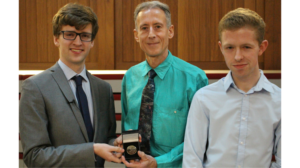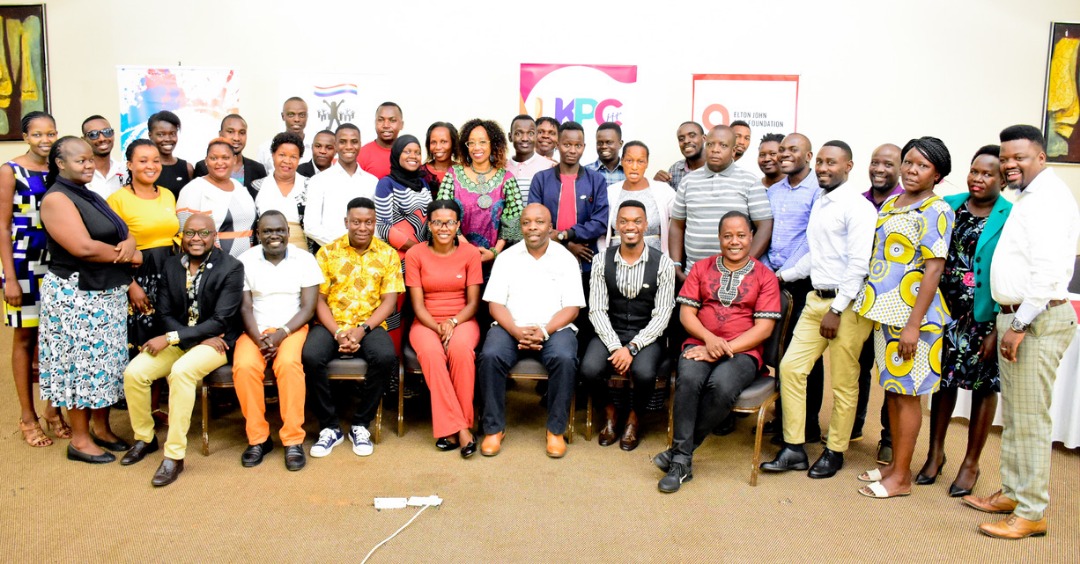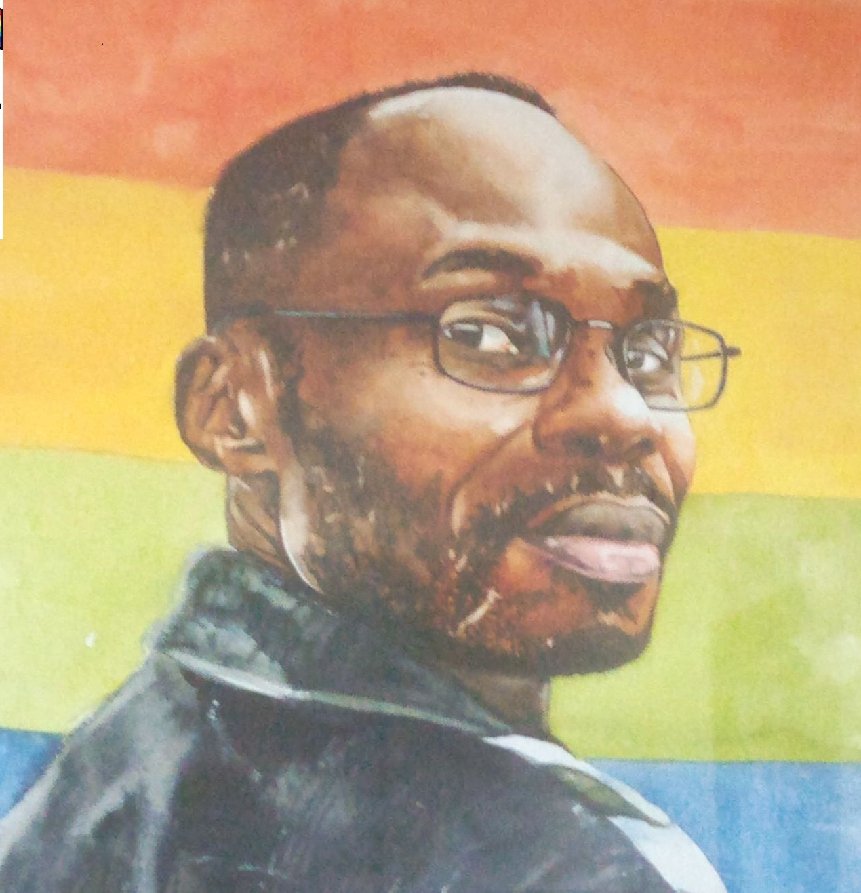
Previous winners include Noam Chomsky, Senator David Norris, Desmond Tutu and Hans Blix.
The James Joyce Award committee states that it is an honour conferred on persons who have “excelled in a field of human endeavor and have made a profound impact on the world around them” and is awarded to Peter Tatchell for his contribution to the cause of LGBT equality and human rights over the last 50 years.
Reacting to the award, Peter Tatchell said:
“My huge gratitude for this distinguished award and honorary fellowship. I feel humbled and overwhelmed to follow in the footsteps of so many illustrious past recipients.
“I dedicate my acceptance of this award to the heroic LGBT campaigners of Sexual Minorities Uganda (SMUG) and allied Ugandan movements, who are spearheading the fight for LGBT rights in Uganda – in a deeply repressive, intolerant society, at great personal risk to their liberty and lives.
“Despite government, police and religious persecution – and the constant threat of vigilante and mob violence – they carry on the fight for LGBT freedom.
“I salute SMUG and allied LGBT groups, and invite people to go to their website and make a donation to help them carry on their amazing work against anti-LGBT hate.”
SMUG Executive Director Dr Frank Mugisha says ” Thank you so much, we appreciate the support and congratulations, the award is well deserved.”
In his acceptance speech at the awards ceremony in Dublin, Mr Tatchell said:
Looking beyond the current national and international state of LGBT rights, to what is likely to come to pass in the future, I’d like to offer some ideas on the likely evolution of human sexuality, primarily, but not exclusively, as it pertains to LGBT people.
While homophobia, biphobia and transphobia have not disappeared, and while they remain particularly acute in many non-Western countries, here in the West this prejudice is much less extreme and prevalent than it once was.
Indeed, most Western nations are now beginning the transition to become post-homophobic societies. My big question is as follows:
What will happen if societies evolve into a state of sexual enlightenment, where the differences between hetero and homo no longer matter? How might this affect the future of same-sex desire and identity?
We already know, thanks to a host of sex surveys, that even in narrow-minded, homophobic cultures, many people are born with a sexuality that is, to varying degrees, bisexual – capable of both heterosexual and homosexual attraction. Witness how same-sex relations often flourish among ostensibly straight people in single-sex institutions like schools, prisons and the armed forces.
The modern-day trend is clear: A YouGov poll in the UK in August 2015 found that 49% of 18-24 year olds said they were not 100% heterosexual and 23% reported having had a sexual experience with a person of the same sex. This appears to be part of a longer term trend, with 27% of 25-39 year olds also saying they’d had a same-sex experience. It seems that bisexuality is emerging as the new normal.
The possibility that individuals could share a capacity for both hetero and homo feelings is an idea supported long ago by the anthropologists Clellan Ford and Frank Beach.
In Patterns of Sexual Behaviour (1965), they noted that certain forms of homosexuality were considered normal and acceptable in 49 (nearly two-thirds) of 76 tribal societies surveyed from the 1920s to the 1950s. In addition, in some of these societies all men switched between opposite-sex and same-sex relations with apparent ease during different phases of their lives.
This led Ford and Beach to deduce that homosexuality is fundamental to the human species, and that its practice is substantially influenced by social mores and cultural expectations.
In other words, the incidence of heterosexuality and homosexuality is not fixed and universal. The two sexual orientations are not mutually exclusive. There is a good deal of fluidity and overlap. In other words, bisexuality.
There is now solid scientific data that our sexuality is significantly affected by biological predispositions, such as genes and hormones in the womb, as documented in the book Born Gay (2005). However, other causal factors appear to include childhood experiences, social expectations, peer pressure and moral values. They channel erotic impulses in certain directions and not others. An individual’s sexual orientation is thus influenced culturally, as well as biologically.
We know that even in intensely homophobic societies, like Nazi Germany and fundamentalist Iran, a sizeable proportion of the population experience both same-sex and opposite-sex arousal.
A survey conducted for the Iranian parliament in 2014 found a huge increase in the number of students who identify as gay – up from 1% to 17%.
The vast and varied sexological research that has been published in many countries documents only consciously recognised desires, as admitted by those surveyed. At the level of unconscious feelings – where passions are often repressed, displaced, sublimated, projected and transferred – it seems probable that very few people are 100 percent straight or gay. Most are a mixture, even if they never physically express both sides of the sexual equation.
This picture of human sexuality is much more complex, diverse and blurred than the traditional simplistic binary image of hetero and homo, so loved by straight moralists and – equally significantly – by many lesbians and gay men.
If sexual orientation has a culturally-influenced element of indeterminacy and flexibility, then the present forms of homosexuality and heterosexuality are unlikely to remain the same in perpetuity. As culture changes, so will expressions of sexuality.
In a future non-homophobic society, more people are likely to have gay sex as inhibitions diminish and exploration becomes the norm. But simultaneously, less people may identify as gay or lesbian. This is because the absence of homophobia will make the need to assert and affirm gayness redundant.
Lesbian and gay identity is largely the product of anti-gay repression. It is a self-defence mechanism against homophobia. Faced with persecution for having same-sex relations, the right to have those relationships had to be defended – hence the emergence of gay identity and the gay rights movement.
But if one sexuality is not privileged over another, defining oneself as gay – or straight – will cease to be necessary and have little social relevance or significance. In other words: the need to maintain sexuality differences, boundaries and identities disappears with the demise of straight supremacism and homophobia.
Homosexuality as a separate, exclusive sexual orientation and identity will begin to fade – and so will its mirror opposite, heterosexuality – as we evolve into a sexually enlightened and accepting post-homophobic society. The vast majority of people will be open to the possibility of both opposite-sex and same-sex desires. They won’t feel the need to label themselves or others as gay or straight because, in a non-homophobic culture, no one will care who we love or we sleep with. Hurrah!



